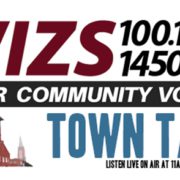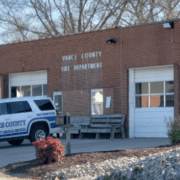TownTalk: Fore! VGCC 38th Annual Golf Tournament Ready To Tee Off
In her new role as executive director of the Vance Granville Community College Foundation, Tanya Weary is preparing for the annual golf tournament, which has raised more than $1.3 million for the college over 37 years.
This year marks the 38th annual event, and Weary told John C. Rose on Monday’s Town Talk that registration is open now until April 15. Visit www.vgcc@edu/golf to sign up to play or to become an event sponsor. The tournament takes place on the afternoons of May 9 and May 10 at Henderson Country Club.
Weary, previously VGCC’s dean of business and industry solutions, said the biggest adjustment for her in her new role is that she no longer is overseeing programs and developing new programs for VGCC.
Now, as the Foundation’s executive director, her role involves making sure that VGCC has the money to continue offering programs to students and in the larger community.
When the college recently transitioned its endowment program to a nonprofit foundation, it opened up doors that allow VGCC to apply for grants, she said.
Providing scholarships for students is just one way that fundraisers like the golf tournament contribute to the success of the college.
“Our sponsors say they want to be supportive and see our students do well,” Weary said, adding that sponsors help “make college a reality for some of our students who may not be able to afford it without the support of the foundation. Sponsors make that happen.”
Sometimes, the financial needs go beyond the traditional tuition and books, she said. VGCC has funds that can help students in emergency situations, too. “It’s only because of sponsors that we can do that,” she said.
It’s not too late to sign up for sponsorship opportunities, Weary noted. Gupton’s Services is the presenting sponsor again this year, Weary said.
Other sponsors include:
- Charles Boyd Chevrolet
- Food Lion
- Glen Raven Mills
- Golden Skillet
- Kilian Engineering
- Mast Drug
- R. Williams
- Oxford Prepatory School
- Select Products
Phone 252.738.3264 or email foundation@vgcc.edu to learn more.
CLICK PLAY!









